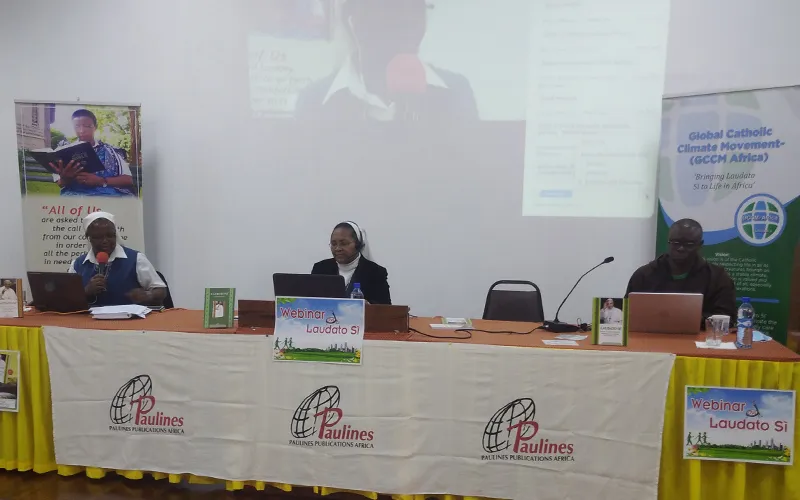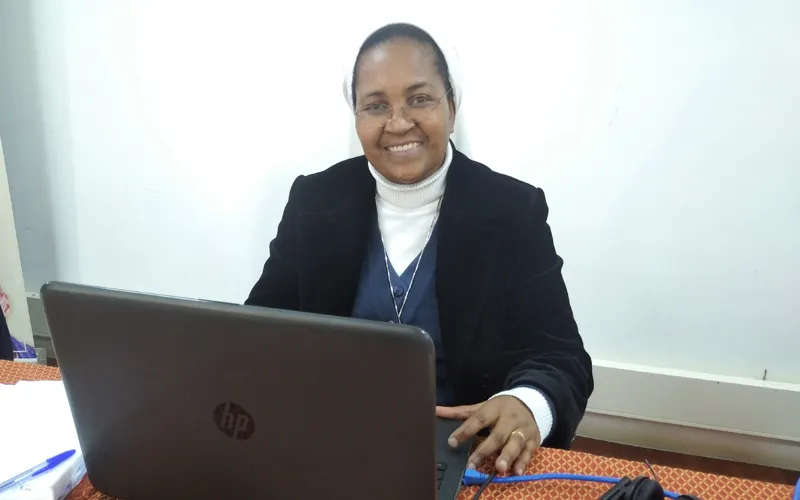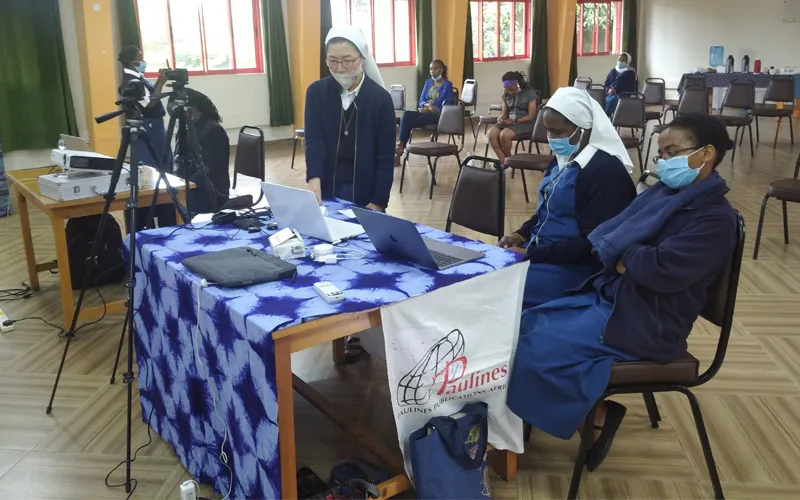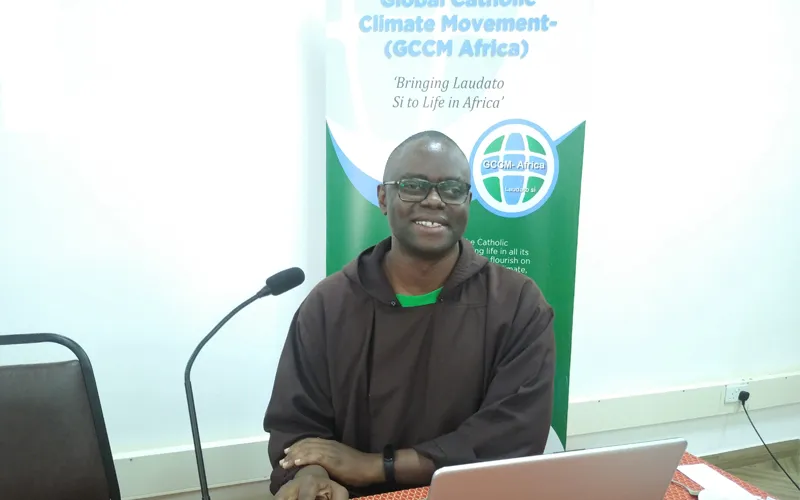“We must forcefully reject the notion that our being created in God’s image and given dominion over the earth justifies absolute domination over other creatures,” Fr. Ayodi said, and added, “Our dominion over the universe should be understood more properly in the sense of responsible stewardship.”
He noted that a true understanding of the gospel of creation can enable us “read the Bible in new ways, with lenses that enable us to see the value of all God’s creation, to see how God loves creation, and to discern how God calls humans to a vocation of caring for creation as good stewards of the environment.”
“We are called to be good stewards of the environment. And so each and every creature is from God and it is the gospel, the gospel of Jesus Christ,” the Kenya-based Priest said.
On his part, the Director of the Justice and Ecology Office (JEO) of the Jesuit Conference of Africa and Madagascar (JCAM), Fr. Charles Chilufya, spoke about the relationship between Laudato Si’ and sustainable development.
“If we want to move from worst to better, what we will need is spiritual conversion,” Fr. Chilufya said in reference to the impact of development projects on the environment.
(Story continues below)
The Zambian-born Jesuit Cleric noted that “we must be attentive to experience. We must see what is going on and be aware of what is happening. We see rivers dry, we can see people going hungry, we can see people going poor while others are getting too rich. God gives us those eyes and senses to see so that we may respond.”

Making reference to Pope Francis in Laudato Si’, Fr. Chilufya said, “We need a conversation that includes everyone since the environmental changes we are undergoing, and its human roots, concern and affect us all… Everyone’s talents and involvement are needed to redress the damage caused by human abuse of God’s creation.”
He urged Catholics to engage politicians to put in place policies that “respect the environment and shape new lifestyles to safeguard our common home.”
Also speaking at the webinar, the Senior Political Advisor for Greenpeace Africa, Fredrick Njehu, highlighted the need for governments, corporates and other environmental stakeholders to put “people at the core of their development projects.”
Reflecting on the topic, “Ecological Crisis and Climate change,” Mr. Njehu said, “Environmental friendly initiatives should take into consideration inputs from the rural sector who feel the pain of climate change.”
Jude Atemanke is a Cameroonian journalist with a passion for Catholic Church communication. He holds a Bachelor’s Degree in Journalism and Mass Communication from the University of Buea in Cameroon. Currently, Jude serves as a journalist for ACI Africa.












